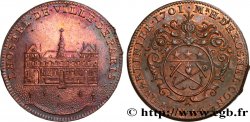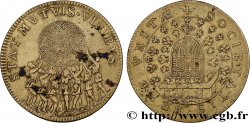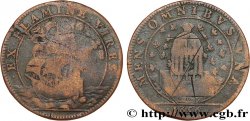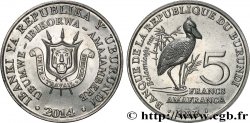fjt_770305 - CORPORATIONS Troisième corps des marchands, les merciers, tailleurs de draps, ouvriers en draps d’or, d’argent et de soie 1645
12.00 €(Approx. 13.56$ | 10.20£)
Quantity
Add to your cart

Type : Troisième corps des marchands, les merciers, tailleurs de draps, ouvriers en draps d’or, d’argent et de soie
Date: 1645
Metal : brass
Diameter : 27 mm
Weight : 4,83 g.
Edge : Lisse
Coments on the condition:
Patine hétérogène et faiblesses de frappe
Catalogue references :
Predigree :
Jeton provenant de la Collection MARINECHE
Obverse
Obverse legend : SALVTIS. SPEM. CONFIRMABIT ; À L'EXERGUE : 1645.
Obverse description : Saint Louis assis de face sous un dais avec le sceptre et la main de justice.
Obverse translation : Il confirmera l'espoir du salut.
Reverse
Reverse legend : QUO. LUMINA. VIBRAT.
Reverse description : Armes des merciers : trois navires sous un soleil rayonnant.
Reverse translation : Il fait scintiller la lumière.








 Report a mistake
Report a mistake Print the page
Print the page Share my selection
Share my selection Ask a question
Ask a question Consign / sell
Consign / sell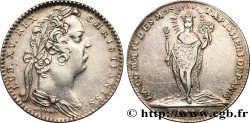
 Full data
Full data